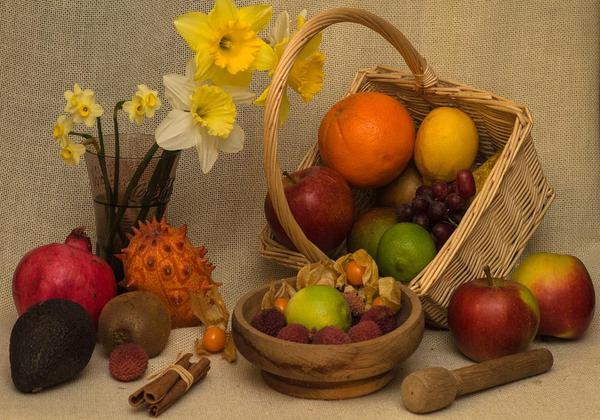It is that time of the year and swimming pools are filled with people who wish to escape the heat. Before you step out this summer, ensure you have some skin protection, say experts.
Omkar Kulkarni, Head of R&D department, Netsurf Network and Austin, Head – Research and Development, Cholayil Private Limited, lists some tips.
* An earthy touch: A dip in the pool can beat the summer heat but it can leave a severe tan on the skin for months. Try a mixture of Multani Mitti (mineral-rich clay) along with few drops of lemon and rose water.
After your time in the sun, mix the ingredients and apply on exposed areas. The paste calms the skin with a cooling effect. Also apply coconut or olive oil liberally over body parts that are exposed to chlorinated water.
* Spice up your life: Water in swimming pools contains disinfectants like iodide and chlorine, which cause skin problems like acne flare-ups, rashes and red patches. Cinnamon has great anti-microbial properties. Add a few drops of honey and Aloe Vera gel to cinnamon powder to fight bacteria-causing acne. The mixture also keeps the skin moist.
* For a golden glow: Turmeric is known for its anti-inflammatory properties and cleanses pores from within. Grind neem leaves with water and mix it with one tablespoon of turmeric powder. Apply the paste on the face with few drops of rose water to clear up skin after acne break-outs and also to reduce scars naturally.
* The secret mantra: To avoid the contagious skin diseases and allergies caused by swimming in public pools, Ayurveda recommends adding neem leaf extract to bathing water. If you cannot organise a fresh extract every day, pick body cleansing products that have “neem” or “tea tree oil” as their main ingredient.
Constipation is one of the most common health problems these days. As per Ayurveda, this condition occurs when vata's cold and dry qualities disturb the colon, inhibiting its proper functioning. A day without complete bowel movement can be very unsettling and sometimes painful. Our modern lifestyle is such that it has given a rise to this problem. Some of the most common causes are junk food consumption, alcohol drinking, smoking and over-eating. Most people affected by this problem feel bloated and uneasy with the inability to pass stool easily.
What Does Ayurveda Recommend?
Here are the remedies that Ayurveda suggests in order to cure constipation:
1. Follow A Vata Dosha Pacifying Diet
One of the best ways to prevent constipation is to follow vata balancing diet. Stay away from cold foods and drinks, dried fruit, salads and most beans. Favour warm foods, warm drinks and well-cooked vegetables.
2. Triphala Is Your Go-To Remedy
One of the most trusted and most effective remedies is Terminalia chebula or triphala, which is a fruit that helps cure constipation. You can have triphala tea or take one-fourth of a teaspoon of it, half teaspoon of coriander seeds and one fourth teaspoon of cardamom seeds. Grind them and have twice a day. Triphala has glycoside that has laxative properties. Cardamom and coriander seeds help relieve flatulence and indigestion.
3. Milk And Ghee
According to the book, 'The Complete Book of Ayurvedic Home Remedies,' "taking one or two teaspoons of ghee in a cup of hot milk at bedtime is an effective and gentle means of relieving constipation. This is especially good for vata and pitta constitutions."
4. Pulp Of Bael Fruit
Eating a half cup of bael fruit pulp and a teaspoon of jaggery every day in the evening before dinner may also help relieve constipation. You can also have bael sherbet along with tamarind water and jaggery added in it.
5. Liquorice Root
Take a teaspoon of powdered liquorice root. Add a teaspoon of jaggery and drink it with a cup of warm water. Liquorice or mulethi is known to promote your bowel activity. However, it is advised you consult an ayurvedic expert before taking it regularly.
6. Roasted Fennel
A teaspoon of roasted fennel taken at bedtime with a glass of warm water may act as a mild laxative. The volatile oils found in fennel seeds can help kick start digestion by promoting the production of gastric enzymes.
7. Anjeer
Anjeer, or figs, soaked in warm water also helps treat constipation, especially in kids. Figs are highly recommended due to the presence of high fibre content. You can eat figs every day in order to keep your digestion going.
8. China Grass
China grass, or agar-agar, is a dried seaweed, which is when cut into bits and cooked in milk, becomes a gelatinous substance.
Here are some important suggestions the book has in order to avoid constipation in the future:
-Drink more than four to five glasses of water in the morning. In fact, you can drink herbal teas like green tea, chamomile tea that can help boost your digestion.
-Have a fibre-rich diet every day.
-Engage in at least 30 minutes of exercise that helps kick-start your digestion.
-Eat lots of seasonal fruits and vegetables to add up to the bulk.
Keep these points in mind and bid goodbye to constipation. Also, before consuming any of the foods mentioned above, we suggest you consult your Ayurveda expert first.
Ayurveda, our ancient system of medicine, is a science for life. It provides us with life tools to stay healthy, vibrant and realise our full human potential. Ayurveda firmly believes that good health starts with proper metabolism of food and good robust digestion. It is based on the premise that food, when consumed according to our personal physiological needs, acts like a medicine balancing our metabolism and promoting vitality.Recognising that we are a part of nature, this system describes three basic energies that drive our inner and outer environment- Vata (Wind), Pitta (Fire), and Kapha (Earth). These are present in each one of us in unique proportions, so our dietary needs are also guided by them. Ayurveda does not believe that one size fits all.
Some tips for appropriate diets are:
1. Eat Food That Nourishes: Eating fresh is the best. We get the maximum nutrients from seasonal locally grown foods and our bodies are also made to process natural whole foods rather than processed foods. Choose whole grains over refined ones, whole fruits and lots of seasonal vegetables. Go organic for the maximum benefits.
2. 2. Balanced Diet: A simple formula for this- include the six Ayurvedic tastes or Rasas: sweet, sour, salty, bitter, pungent, and astringent in every meal. It is believed that including all six tastes in every meal will ensure a balanced meal and a feeling of satisfaction preventing snacking and overeating.
3. Load Up On Fruits And Vegetables: Colour your plate deep blue, purple, red, green, or orange. These are the richest sources of antioxidants and nutrients that help boost immunity. Load up on fruits and vegetables, they are great internal cleansers too.
4. Make Nutrition Bioavailable: When we eat raw vegetables, the digestive system takes time to work through the layers to reach the core and release nutrients. Eating them cooked means more efficient digestion. Ayurveda recommends that eating sautéed, steamed and cooked vegetables help the digestive process. If you want to eat salads, then lunch is the time to do so.
5. Spice Up: Spices are an integral part of our daily meals. They add to the taste but very few realise that spices add to a meals' nutritional value too. They enhance digestion, promoting absorption of nutrients to the maximum. Spices also add to the Ayurvedic principle of including all the rasas in a meal.
6. Cleanse Out: Ayurveda staunchly believes that when our digestive energy- Agni is robust, we are in a state of balance and health. However, if our digestion is not good we build up Ama- an accumulation of digestive toxins. To avoid this, we must eat away from our computer or TV, in a peaceful atmosphere. Food is eaten when you are actually hungry, let the body set the time. Eat at a moderate pace, neither gulping nor too slowly. Ayurveda also recommends a complete cleanse in every change of season, especially at the start of spring.
7. Drink Up Water: The key is to keep yourself hydrated and energised with water, preferably warm to flush out the toxin. Ice cold water is a bad idea, cool or room temperature is healthy. The caffeine, aerated sodas and alcohols are not really the vitality boosting drinks! Go easy.
Love Milkshakes? The goodness of freshly cut fruits blended with the ever so nutritious milk, think there can’t be a concoction as healthy as this? Think again.
Turns out that pairing these two healthy foods may not always result in a healthy combination. In fact, it is better not to team certain foods and consume them in pairs, as they can wreak havoc on your digestion, gut health and overall system.
According to Ayurveda, one such food combination you must stay away from is that of milk and fruits - which puts our very dear milkshake on the hot seat. As per Ayurveda, certain food combinations disturb the normal functioning of the gastric fire and upset the balance of the doshas (Vata, Pitta, Kapha). Incompatible combination of foods can produce indigestion, fermentation, gas formation and bloating.
According to the ‘The Complete Book of Ayurvedic Home Remedies’, by Dr. Vasant Lad, all sour fruits, bananas, mangoes and melons, should never be blended with milk and yogurt.
The book notes, “Particularly to be avoided are concoctions like banana milkshakes or fruit smoothies made with milk.” It further goes on to explain why bananas and milk are to be avoided together, “Bananas with milk can diminish agni (gastric fire) and change the intestinal flora, resulting in toxins and causing sinus congestion, cold, cough, allergies, hives and rash,” mentions the book.
Fruits tend to be acidic in nature especially the ones that aren’t fully ripe, in combination with milk, it leads to curdling. Our body requires different enzymes to break the protein from milk and a different one to break down fruits. The fruit and milk, thereby confuses the digestive process of the body.
Ayurvedic expert Dr. Dhanvantri Tyagi explains the physiology behind the milk and fruits combination in the body, “Fruits and milk are two of the most nutrient dense foods that you must have, but preferably alone. If taken together, it results in immense energy release in the body. And when this excess of energy is not utilized by body- it starts getting stored in fat cells and result in weight gain. The combination also results in aggravation of kapha, so it is definitely not recommended for Kapha type of people.
The post-digestion material of the combination also increases hyperactivity in the system, that hinders the process of tissue generation. “
The next time you go for a glass of milkshake, at least make sure the fruits are not of the very sour kinds.

Here are some of the tips to keep from falling sick this summer:-
- Ayurveda recommends that you should wake up during the Brahma Muhurat and after attending to nature's call, do Surya Namaskara and take a light and fresh breakfast.
- Stay hydrated throughout the day by drinking water. You can also add a dash of lime and mint in water and drink every day. Make sure you do not drink chilled water as it will make you sick.
- Consume foods that have more water content. Choose to eat sweet fruits like melons, pears and grapes. Vegetables like cucumber and zucchini and dairy products such as milk and ghee should be present in your diet.
- Do not forget to add herbs in your diet. Amla, brahmi, neem and gudduchi are known to be the best cooling herbs that will keep the pitta dosha in balance.
- Avoid sour foods that may include cream and vinegar. Spicy dishes should also be avoided as they can heat up your body causing various health problems, especially digestive issues.
- Cook with cooling spices like fennel seeds, mint, anise and cardamom. Make sure you add them in your daily diet to keep the pitta dosh in balance.
- As per Ayurveda, rose water is a magic potion that has innumerable healing powers and cooling effect on the body. You can apply rose water on your skin after being exposed to sun in order to get relief from excessive heat.
- Taking a 10-15 minute walk at sunrise will help stimulate your mood and body's production of vitamin D.










